22 start with N start with N
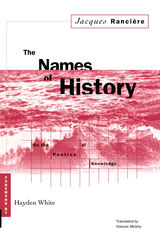
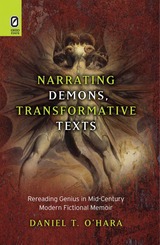
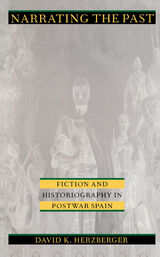
The narrative and rhetorical strategies of historical discourse figure in both the fiction and historiography of postwar Spain. Herzberger analyzes these strategies, identifying the structures and vocabularies they use to frame the past and endow it with particular meanings. He shows how Francoist historians sought to affirm the historical necessity of Franco by linking the regime to a heroic and Christian past, while several types of postwar fiction—such as social realism, the novel of memory, and postmodern novels—created a voice of opposition to this practice. Focusing on the concept of writing history that these opposing strategies convey, Herzberger discloses the layering of truth and meaning that lies at the heart of postwar Spanish narrative from the early 1940s to the fall of Franco. His study clearly reveals how the novel in postwar Spain became a crucial form of dissent from the past as it was conceived and used by the State.
Making a decisive intervention in the debate about the ways in which narration determines both the meaning and truth of history and fiction, Narrating the Past will be of special interest to students and scholars of the politics, history, and literature of twentieth-century Spain.
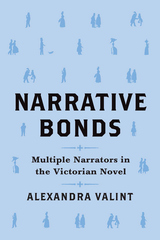
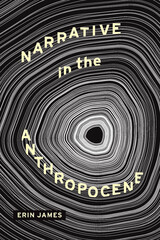
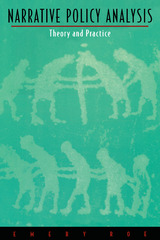
Assuming no prior knowledge of literary theory, Roe introduces the theoretical concepts and terminology from literary analysis through an examination of the budget crises of national governments. With a focus on several particularly intractable issues in the areas of the environment, science, and technology, he then develops the methodology of narrative policy analysis by showing how conflicting policy "stories" often tell a more policy-relevant meta-narrative. He shows the advantage of this approach to reading and analyzing stories by examining the ways in which the views of participants unfold and are told in representative case studies involving the California Medfly crisis, toxic irrigation in the San Joaquin Valley, global warming, animal rights, the controversy over the burial remains of Native Americans, and Third World development strategies.
Presenting a bold innovation in the interdisciplinary methodology of the policy sciences, Narrative Policy Analysis brings the social sciences and humanities together to better address real-world problems of public policy—particularly those issues characterized by extreme uncertainty, complexity, and polarization—which, if not more effectively managed now, will plague us well into the next century.
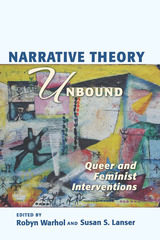
Through twenty-one essays prefaced by a cogent history of the field, Narrative Theory Unbound offers new perspectives on narrative discourse and its constituent elements; on intersectional approaches that recognize race, religion, and national culture as integral to understanding sexuality and gender; on queer temporalities; on cognitive research; and on lifewriting in graphic, print, and digital constellations. Exploring genres ranging from reality TV to fairy tales to classical fiction, contributors explore the thorny, contested relationships between feminist and queer theory, on the one hand, and between feminist/queer theory and contemporary narratologies, on the other. Rather than aiming for cohesiveness or conclusiveness, the collection stages open-ended debates designed to unbind the assumptions that have kept gender and sexuality on the periphery of narrative theory.
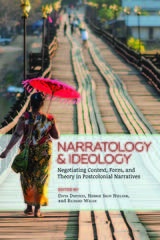
The thirteen essays in Narratology and Ideology offer compelling readings of individual novels, with a focus upon South Asian literature, that provide a cumulative case study on the value of postcolonial narratology. The essays show not only how narrative theory can be productively applied in service of postcolonial criticism but also how such attention to postcolonial fictions can challenge and refine our theoretical understanding of narrative.
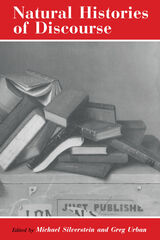
Eleven original essays of "natural history" range in focus from nuptial poetry of insult among Wolof griots to case-based teaching methods in first-year law-school classrooms. Stage by stage, they give an idea of the cultural processes of "entextualization" and "contextualization" of discourse that they so richly illustrate. The contributors' varied backgrounds include anthropology, psychiatry, education, literary criticism, and law, making this collection invaluable not only to anthropologists and linguists, but to all analysts of culture.

How films help us understand the inevitable death of Earth and humanity
Offering a bracing theoretical corrective to ecocriticism’s emphasis on pedagogies of care and interconnection, Negative Life: The Cinema of Extinction brings cinema studies, queer theory, and psychoanalysis into novel configuration around a concept inherent to yet critical of life: negative life, a sundering of the connections between human and nonhuman relations. Engaging questions and challenges such as the nothingness of existentialism, the aversive side of sex, and the immanent exception of the drive in psychoanalysis, coauthors Steven Swarbrick and Jean-Thomas Tremblay not only counter ecocritical pieties but cut a new path for theory. They engage a unique corpus of films and philosophies that reject the pastoralism of “entanglement” or “enmeshment,” which have functioned as an ethical and aesthetic alibi for extinction. Negative Life examines films by Julian Pölsler, Kelly Reichardt, Lee Isaac Chung, Mahesh Matai, and Paul Schrader, which exemplify the existential contradictions that have intensified amid the sixth mass extinction; meanwhile, a set of interludes on ecohorror supplement this focus on negative life and the philosophers and theorists who express it. Each case study testifies formally and thematically to negative life as a structural condition of thought and film. Together, the titles that compose the titular cinema of extinction reveal the unlivable dimension of life and art, where form, desire, and nonbelonging tarry with the future-oriented promise of ecostudies—where all that lives connects. Negative Life militates against this promise, showing that faith in connection is a dead end.
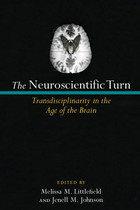
The Neuroscientific Turn brings together 19 scholars from a variety of fields to reflect on the promises of and challenges facing emergent "neurodisciplines" such as neuroethics, neuroeconomics, and neurohistory. In the aftermath of the Decade of the Brain, neuroscience has become one of the hottest topics of study---not only for scientists but also, increasingly, for scholars from the humanities and social sciences. While the popular press has simultaneously lauded and loathed the coming "neurorevolution," the academy has yet to voice any collective speculations about whether there is any coherence to this neuroscientific turn; what this turn will and should produce; and what implications it has for inter- or transdisciplinary inquiry.
Melissa M. Littlefield and Jenell M. Johnson provide an initial framework for this most recent of "turns" by bringing together 14 original essays by scholars from the humanities, social sciences, and neurosciences. The resulting collection will appeal to neuroscientists curious about their colleagues' interest in their work; scholars and students both in established neurodisciplines and in disciplines such as sociology or English wondering about how to apply neuroscience findings to their home disciplines; and to science, technology, and society scholars and students interested in the roles of interdisciplinarity and transdisciplinarity in the construction of knowledge.
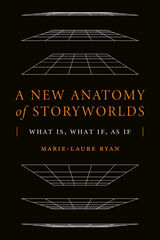
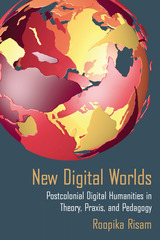
New Digital Worlds traces the formation of postcolonial studies and digital humanities as fields, identifying how they can intervene in knowledge production in the digital age. Roopika Risam examines the role of colonial violence in the development of digital archives and the possibilities of postcolonial digital archives for resisting this violence. Offering a reading of the colonialist dimensions of global organizations for digital humanities research, she explores efforts to decenter these institutions by emphasizing the local practices that subtend global formations and pedagogical approaches that support this decentering. Last, Risam attends to human futures in new digital worlds, evaluating both how algorithms and natural language processing software used in digital humanities projects produce universalist notions of the "human" and also how to resist this phenomenon.
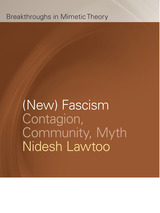
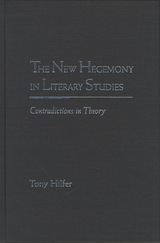
The problem Hilfer identifies is one of logical consistency, but also of moral and psychological implications, and it can be found operating across the whole spectrum of literary Theory. It is, however, as this book makes blindingly clear, not immune from scrutiny. With quiet erudition and consistent incisiveness, Hilfer shows how the various methods, while ostensibly at odds, actually fit together, all sharing the same peculiar structure and logic, and all wearing an identical set of ideological blinders. He offers examples of theorists-and assumptions-hard at work on particular texts, and again and again (often letting these theorists refute themselves) pinpoints the blindspots that have become endemic in the practice of Theory.
Written with great care and a deep commitment to the value and integrity of literary criticism and theory, this tonic work stands as a corrective to the misuse of theory, and a bracing reminder of how a critical approach works when it is well and judiciously applied.
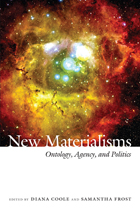
Coole and Frost argue that contemporary economic, environmental, geopolitical, and technological developments demand new accounts of nature, agency, and social and political relationships; modes of inquiry that privilege consciousness and subjectivity are not adequate to the task. New materialist philosophies are needed to do justice to the complexities of twenty-first-century biopolitics and political economy, because they raise fundamental questions about the place of embodied humans in a material world and the ways that we produce, reproduce, and consume our material environment.
Contributors
Sara Ahmed
Jane Bennett
Rosi Braidotti
Pheng Cheah
Rey Chow
William E. Connolly
Diana Coole
Jason Edwards
Samantha Frost
Elizabeth Grosz
Sonia Kruks
Melissa A. Orlie

A marginalized but persistent figure of Greek tragedy, Niobe, whose many children were killed by Apollo and Artemis, embodies yet problematizes the philosophically charged dialectics between life and death, mourning and melancholy, animation and inanimation, silence and logos. The essays in Niobes present her as a set of complex figurations, an elusive mythical character but also an overdetermined figure who has long exerted a profound influence on various modes of modern thought, especially in the domains of aesthetics, ethics, psychoanalysis, and politics. As a symbol of both exclusion and resistance, Niobe calls for critical attention at a time of global crisis.
Reconstructing the dialogues of Phillis Wheatley, G. W. F. Hegel, Walter Benjamin, Aby Warburg, and others with Niobe as she appears in Aeschylus, Sophocles, Ovid, and the visual arts, a collective of major thinkers—classicists, art historians, and critical theorists—reflect on the space that she can occupy in the humanities today. Inspiring new ways of connecting the classical tradition and ancient tragic discourse with crises and political questions relating to gender, race, and social justice, Niobe insists on living on.
Contributors:
Barbara Baert, Andrew Benjamin, drea brown, Adriana Cavarero, Rebecca Comay, Mildred Galland-Szymkowiak, John T. Hamilton, Paul A. Kottman, Jacques Lezra, Andres Matlock, Ben Radcliffe, Victoria Rimell, Mario Telò, Mathura Umachandran, Daniel Villegas Vélez

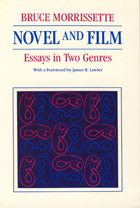
The influential essays collected in Novel and Film display a wide range of critical and analytic approaches to the narrative aspects of the two genres. For all the variety of their subjects, from constructional forms such as interior duplication and game play to intertextual parallels with mathematics and topology, these essays together define a unified critical perspective, one that has brought fresh precision to the analysis of narrative techniques and that continues to raise questions of prime importance to contemporary fiction. Included is a complete bibliography of Morrissette's scholarly works.

Contributors
Nancy Armstrong, Jane Elliott, Matthew Hart, Nathan Hensley, Nicholas Huber, Jeanne-Marie Jackson, John Marx, Tom McCarthy, Vaughn Rasberry, Deisdra Reber, Lily Saint, Emilio Sauri, Rachel Greenwald Smith, Paul Stasi
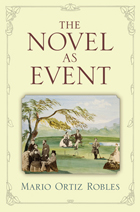
"The Novel as Event brilliantly does two things: presents a strikingly new theory of the way novels have effect in the social world, and also presents original readings of five major Victorian novels as demonstrations of the way that theory may be exemplified in practice. No other book that I know of does either of these two things in at all the same way."
---J. Hillis Miller, University of California, Irvine
"I have no doubt that this book will become an important part of a renewed questioning of a certain unchallenged historicism prevalent in Victorian novel studies from the beginning."
---Kevin McLaughlin, Brown University
The Novel as Event is a timely reconsideration of the historical role of the Victorian novel from the perspective of its performativity. In a highly original application of the work of Jacques Derrida, Paul de Man, Pierre Bourdieu, Judith Butler, and other readers of J. L. Austin, Mario Ortiz Robles argues that the language of the novel is paramount and that the current emphasis on the representational and physical aspects of the novel tends to obscure this fact. He provides brilliant original readings of five major Victorian novels: Dickens's Our Mutual Friend, Brontë's Jane Eyre, George Eliot's Middlemarch, Thackeray's Vanity Fair, and Collins's The Woman in White, illustrating that it is impossible to fully grasp the cultural power of the novel, from its role in the cultivation of manners and the conduct of courtship to the consolidation of bourgeois ideology and the construction of the subject, without an adequate account of the performativity of its language. By considering the novel as a linguistic event, Ortiz Robles offers a new explanatory model for understanding how novels intervene materially in the reality they describe, and, in doing so, he seeks to reinvigorate critical debate on the historicity of the realist novel and current methods of cultural criticism. The Novel as Event serves as a well-timed corrective to the narrow historicist approach to the materiality of the novel that currently holds sway.
Mario Ortiz Robles is Assistant Professor of English at the University of Wisconsin, Madison.
Cover art: "Untitled page from Constance Sackville West Album." Courtesy of George Eastman House, International Museum of Photography and Film.
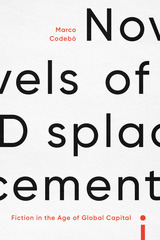
Using four works as case studies—Bernardo Carvalho’s Nove noites, Daniel Sada’s Porque parece mentira la verdad nunca se sabe, Zadie Smith’s White Teeth, and Mathias Énard’s Zone—Codebò investigates how globalization, displacement, and technology inform our understanding of subjectivity and one’s place in the world. Coming from different literary traditions––Brazilian-Portuguese, Spanish, English, and French–– Novels of Displacement traces the development of displacement caused by organized crime, migration, and war. Ultimately what emerges from this study is evidence of how cultures of untruth damage but do not destroy human agency.
READERS
Browse our collection.
PUBLISHERS
See BiblioVault's publisher services.
STUDENT SERVICES
Files for college accessibility offices.
UChicago Accessibility Resources
home | accessibility | search | about | contact us
BiblioVault ® 2001 - 2024
The University of Chicago Press









